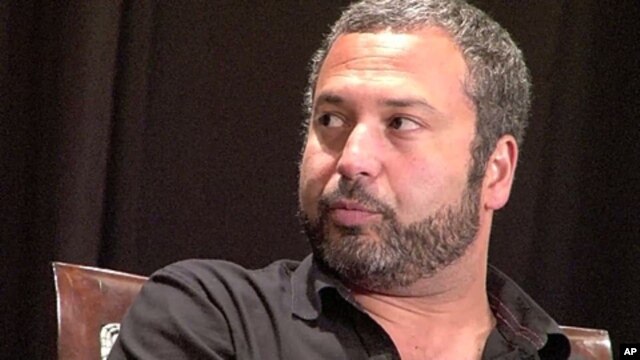From CNN

Los Angeles (CNN) – For years, Ahmed Ahmed’s acting resume read like a rap sheet.
His first film role was Terrorist No. 4 in “Executive Decision.”
His first sitcom part: Hakeem, a terrorist, on “Roseanne.”
“I realized there was a big market out there for playing bad Arabs,” the actor said with a sarcastic laugh.
Born in Egypt and raised in Riverside, California, Ahmed – a friendly, round-faced guy – carries no trace of an accent and doesn’t look particularly sinister.
But he said he was rarely considered for parts playing doctors, lawyers … or anything, really, but menacing Muslims during the early days of his career.
Meanwhile, a pilgrimage to Mecca, the spiritual home of Islam, pricked his conscience. He felt responsible, in some small way, for the violent images of Islam broadcast across American screens.
“I realized I was becoming a slave to the industry,” Ahmed said.
The role in which the actor was regularly cast, an Islamic extremist, has become almost as familiar a Hollywood cliché as the noble savage or gold-hearted hooker.
In films and television shows from “24” to “Syriana,” Muslims are the olive-skinned evildoers who cloak their violent schemes in religious rhetoric while cursing their American adversaries.
Ahmed wanted no part of that anymore. He quit Hollywood and went back to waiting tables, where he compensated for the bad food with a bonhomie that would blossom into a standup comedy act.
Fast forward to 2014, and Ahmed, who turns 44 this month, is starring in “Sullivan & Son,” a raunchy TBS sitcom that revels – or wallows, if you like – in political incorrectness. (CNN and TBS are both owned by Time Warner.)
Yes, his character – a hapless tow-truck driver also named Ahmed – endures a cringe-worthy barrage of ethnic jokes.
But it’s a sign of progress, in his view, for Ahmed to be considered as ripe for ribbing as the rest of the multiethnic gang on “Sullivan & Son,” one of the few sitcoms to feature an Arab-American Muslim who is a character, not a caricature.
“I don’t have to be the ‘Arab guy’ or the ‘Muslim guy,’” Ahmed said. “Those things fade into the background, and I’m just a regular guy.”
For decades, Ahmed and other Muslims say, Hollywood has put their faith very much in the foreground, often cast in an ominous light.
After 9/11, the typecasting only increased, experts and activists say, especially for actors of Middle Eastern or Southeast Asian descent.
“When Hollywood dealt with Muslim characters it was completely one-dimensional,” said Arsalan Iftikhar, an American writer and intellectual who blogs at TheMuslimGuy.com. “They were the seething terrorists, without any sort of humanizing attributes.”
But American Muslims may be finally smashing the silver-screen stereotypes.






